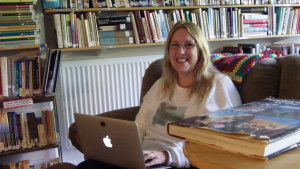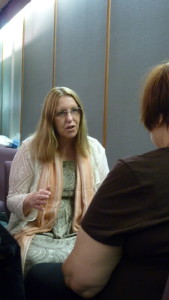Arie Luyendyk Jr., the recent Bachelor on the The Bachelor was trashed all over social media because of his recent decision. If you haven’t been watching the show, he proposed to Becca Kufrin. They spent weeks together but his mind was split between Becca and the other woman he had fallen in love with on the show, Lauren Burnham.
Lauren presented (as the “Reality Show” depicted her) as being insecure and needing constant reassurance. We all could see Arie light up when he was around her, but many of the viewers and his family saw Becca as the better choice. She was confident, happy, fun and a beautiful woman.
Eventually Arie contacted Lauren through Instagram and started a conversation, which resulted in his breaking off the engagement to Becca. On After the Final Rose, an extended program they created, he proposed to Lauren.
The large following of Bachelor Nation was outraged, but I felt differently.
As a counselor and a psychic medium, working with clients for over 30 years, I was delighted to see him follow his “gut feeling.” He struggled he said from either being in his head or following his heart, but as I watched this season of the show, I could see it was his gut that was screaming out to him and his head that was being what we would think of as reasonable.
[clickToTweet tweet=”The large following of Bachelor Nation was outraged, but I felt differently. #BachelorNation ” quote=”The large following of Bachelor Nation was outraged, but I felt differently.”]
In sessions with clients when they are leaving a marriage or other relationship, I ask them, “When did you first know this was not the person for you?” Almost always they would answer something like “When we first met,” or “The day of the wedding.” Making decisions where your heart, head and gut are involved are not easy. Had they listened to their intuition, many of the traumatic experiences would not have happened.
This is especially true when you have never been taught how to develop your intuition and to trust it.
[clickToTweet tweet=”Arie finally followed his gut! #AftertheFinalRose #BachelorNation @arie” quote=”Arie finally followed his intuition!”]
There are four basic ways to get intuitive information.
Clairsentience or “clear feeling”
Clairsentience comes from your feelings and physical sensations. When you begin to develop this sense, it is important to slow down and notice how you feel in certain situations.
Claircognizance or “clear knowing”
When you find you just know something, but cannot explain why, this can be claircognizance.
Clairaudience or “clear hearing”
Clairaudience is when you hear information. These voices can be from different sources within.
Clairvoyance or “clear seeing”
With clairvoyance you may see images and understand the meaning of these visions.
This may be a good time to become aware of your own inner guidance, your own intuition. One way to do this is to start a journal and just take notes about what you sense, know, hear, or images you get and then start seeing how they validate what happens in your life.
You can also find a PDF 4 Ways to Develop your Clairvoyance on my website.
With 4 Ways to Develop Your Clairvoyance you can also teach your children how to trust their gut. Children are more in tune with this ability because they have not lost it yet! Find a friend and start exploring with each other by sharing experiences and you’ll see how easy it is to start listening to your intuition.
After this debacle, Arie’s fiancé Lauren no longer presents as being insecure. It appears she truly knows that Arie has chosen her. This supports the thought that “everything happens for a reason.” Having said that, I think we can all agree that initially following your intuition is the simplest and easiest way to live your life.
Blessings to Arie and Lauren. I wish them a spectacular life together.
Congratulations to Becca Kufrin, the new Bachelorette!
All is well in Bachelor Nation!








